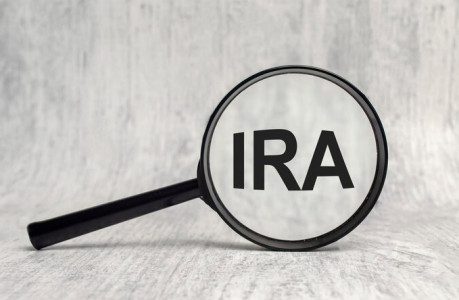Difference Between A Will And A Trust: Essential Things To Know About It

The difference between a will and a trust often creates confusion in the user’s mind. Do you face the same problem? If yes, then this article can remove all the confusion from your end with ease. You should follow the correct process from your end while attaining your needs with ease.
Wills is a document that directs the distribution of assets after your death to the selected heirs and beneficiaries. Trust, on the other hand, is the legal arrangement. It protects the assets and directs their use and disposition according to the owner’s intentions.
Wills take effect after the death of a person. On the other hand, trust can have its effect both at the time of a person’s life and death. You need to get through more details of the fact to have a better insight into it. 8a Certification can help you in this case.
Difference Between A Will And A Trust

There are several points of difference between a Will and a trust. You need to get through the details of it while attaining your requirements with complete ease. Ensure that you know the details of the two concepts minutely. Without knowing the reality you cannot reach any conclusion.
1. Legal Stand
A will is a legal document that shows how a person’s assets and belongings will be divided after their death. A trust is a legal arrangement that holds assets on behalf of beneficiaries specified by the trusts. If you want to know the difference between a will and a trust then you cannot ignore this fact as well. You need to follow the right process that can make things easier for you.
2. Belongingness
Will allows individuals to specify beneficiaries for their belongings, name guardians for minor children, and appoint an executor. A trustee manages the trust (often the grantor during their lifetime) and follows the instructions laid out in the trust document. Regarding how assets should be managed and distributed. You must have a sense of belongingness while attaining your goals with ease. The difference between a will and a trust comprises this vital distinction as well. You must explore things to get a better understanding.
3. Time Of Impact
A will goes into effect only after the person passes away. It goes through a legal process. This is known as probate, during which the court oversees the distribution of assets to the beneficiaries. Unlike a will, a trust can be effective during the grantor’s lifetime (living trust) and after their death. It can continue to manage assets for beneficiaries, potentially avoiding the probate process for those assets placed in the trust. The rate of return depends on this fact as well.
4. Control
Wills are public documents, meaning they are filed with the court and can be accessed by anyone. Trusts can provide more privacy than wills since they generally do not go through the probate process. The difference between a will and a trust comprises the complete control of one another. You must ensure that you do not make your selection in the incorrect fashion.
Essential Considerations For Making A Will

There are numerous considerations for making a will. You cannot skip out on the factors that can make things essential for you in the long run. Try to develop a better solution that can make things easier and perfect for you in all possible ways. Form 6781 can offer you the best options
1. Clarity & Specificity
Ensure that your will is clear and specific and leaves no room for ambiguity. Clearly identify your assets and outline how you want them distributed among your beneficiaries. Clarity in making the will is very important. You cannot skip this part from your end. Ensure that you maintain complete clarity in the process.
2. Appointing & Executor
Choose a trustworthy and responsible person to be the executor of your will. This person will be responsible for managing your estate and ensuring that your wishes, as outlined in the will, are carried out. You should appoint an executor who can help you in this regard. They can offer you the legal clarity that you need to be well aware of while preparing a will.
3. Identifying The Beneficiaries
Clearly specify who will inherit your assets. Be specific about individuals, organizations, or charities and the portions of your estate they will receive. After you know who will be the owner of your property, you need to clearly specify this from your end. Without knowing the needs of the beneficiaries, things can turn worse for you in all possible manner. You must plan out the perfect solution that can assist you in reaching your goals with ease.
4. Guardianship For Minor Children
If you have underage children, designate a guardian who will take responsibility for them in the event of death of their parents. Discuss this choice with the potential guardian before finalizing your will. The difference between a Will and a trust needs proper clarity. You should ensure that you do not make things happen in the wrong direction.
5. Application Of Digital Assets & Liabilities
Consider your digital assets, such as online accounts, social media profiles, and cryptocurrency. Determine how you want these handled or distributed after your death. Additionally, address any outstanding debts or liabilities in your will. The correct application of digital assets and liabilities will make things too complex for you in the long run. Ensure that you follow the correct process in this regard.
Final Take Away
Hence, if you want to know the difference between a will and a trust, then you must follow the complete details of this article. You need to identify the best options that can make things easier for you to reach your objectives with ease.
You can share your views and comments in our comment box. It will help us to know your take on this matter. Without knowing the facts, things can turn worse for you in all possible ways. Try out the best options that can make things work perfectly in your way.
Deciding between a will and a trust often depends on individual circumstances, estate size, and specific goals regarding asset distribution and management. Many individuals use both a will and a trust as part of their comprehensive estate plan to cover different aspects of their estate planning needs.
Continue Reading:

























Leave A Reply